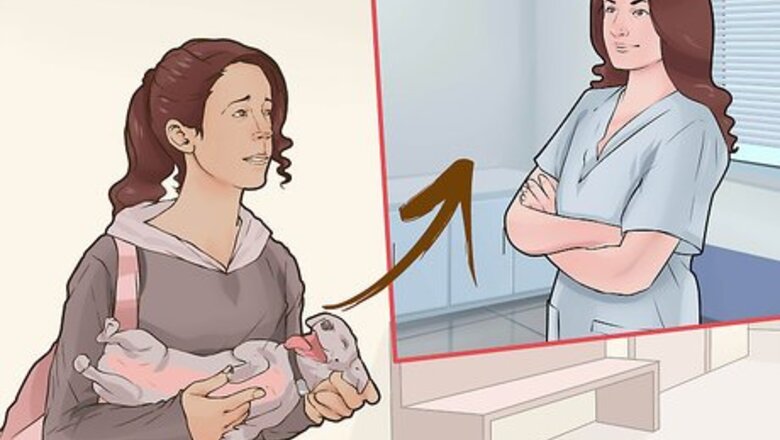
views
Building Your Case
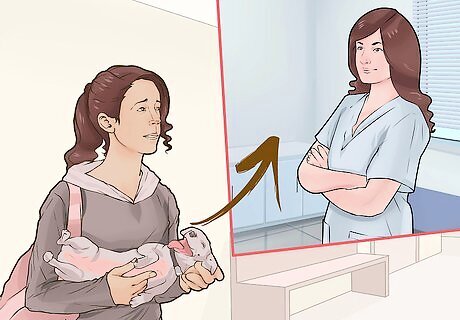
Preserve the animal's remains. If the animal died, then preserve it. Take it to a second vet, which can perform an animal autopsy (called a “necropsy”). The purpose of the necropsy is to find out what killed the animal. If you are too emotional, then call a friend and have him or her help you. However, you should not delay. Ask the vet who performs the necropsy if he or she is willing to testify in court. Also get a copy of the necropsy report. The report, and the vet's testimony, will be helpful in a malpractice lawsuit.

Write down your memories. You will probably also testify at trial. In order to be an effective witness, you should sit down as soon as possible and write down what you remember. This may be very difficult, especially if you have lost a pet. However, you need to document your memories while they are still fresh in your mind. Write down what the vet did and said. Did the vet ask you questions about the animal? Did the vet tell you what treatment to give the animal? Write down what you said. Did you tell the vet about a pre-existing condition the animal suffered from?
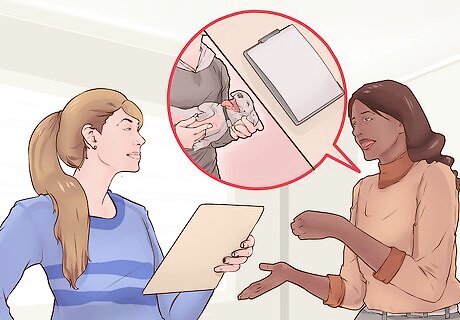
Get your vet's records. To win a lawsuit, you need evidence. You should contact the vet who you think committed malpractice and request copies of everything in the file. You can use these records in a later lawsuit as proof of the treatment the vet gave your animal. If the vet doesn't want to turn over the records, then tell your lawyer. After the lawsuit is filed, you can request that the vet turn over these documents. If the vet still refuses, then a judge can punish the vet.

Hold onto your medical bills. Depending on your state, you might be able to get compensated for any treatment needed to make your animal well. For example, if the vet broke the animal's leg, then you can be compensated for treatment provided by a second vet. Hold onto: veterinarian bills receipts for medicines you had to buy receipts for supplies (such as bandages, tape, etc.) that you needed to treat the animal's injuries

Meet with an attorney. Veterinary malpractice lawsuits are complicated. You will need to prove that the actions your vet took were not what actions a reasonably skilled and diligent veterinarian would take. You also need to show that the vet's carelessness caused your animal's injury. To help assess the strength of your case, you should meet with an attorney. You can get a referral by calling your state or local bar association. After you have the name of a lawyer, you should call and schedule a 15-30 minute consultation. At the consultation, you should talk about what evidence you will need to gather. Also talk about the lawyer's fee structure. Some lawyers might be willing to do only the tasks that you give her. This is called “limited scope representation” and is a good way to keep legal costs low.

File an agency complaint. Each state has a government agency responsible for protecting consumers and animals by regulating the veterinary industry. These agencies are usually part of your state's consumer affairs department, which will usually have a veterinary medical board within it. Most states will allow you to file a complaint against anyone they can regulate. This will usually include veterinarians, technicians, and the businesses that employ them. Your complaint will be investigated by the appropriate state agency and action will be taken if warranted. In California, for example, you can file a complaint with the Department of Consumer Affairs. When you visit the Veterinary Medical Board website, there will be a link to file a complaint. When you fill out your complaint, you will need to include your contact information, the type of complaint you are filing, a description of the incident, and who you are complaining against. You will then be given the opportunity to attach any evidence you have to the complaint. When you are done, you can file it and wait for a complaint.

Discuss what compensation you can get. Before bringing a lawsuit, you need to understand what you can get compensated for if you win your veterinary malpractice lawsuit. In the United States, compensation is determined by state law, and the states differ widely in what they will allow you to be paid for. You should discuss the availability of these different damages with your lawyer: The market value of the animal. This means the amount of money it would take to replace the animal. In some states, this is the only compensation you can get. The market value is based primarily on the animal's age, breed, and health. If your old horse was killed, then the market value will be less than if a younger horse had been killed. The cost of treating the animal to fix the harm caused by the malpractice. The special value of the animal. These damages are meant to compensate you for your loss of companionship with the animal. If a beloved pet dies, then the special value would be higher than if a work horse died. This type of compensation is available in only some states. Emotional distress. Under some circumstances, states will allow you to get compensated for your emotional distress. Punitive damages. If the vet's conduct was intentional or outrageous, then you can get punitive damages. These are meant to punish the defendant.

Hire expert witnesses. You will not win a veterinary malpractice lawsuit simply because your animal died. Not every sick animal can be saved, and your animal might have died regardless of what the vet did. Instead, you need to show that the vet's treatment fell below the professional standard of care expected of veterinarians. You also need to show that the vet's treatment caused the injury or death. These topics are beyond most people's everyday experience. A judge will not know what the professional standard of care is. Nor will the judge know whether the vet's actions caused the animal's injury. Accordingly, you will need to hire expert witnesses who can offer an opinion on these topics. Your lawyer should know experts who can testify for you. Generally, the expert is another vet. If you are in small claims court, then you might not have to hire an expert. Instead, you can have the expert vet write a letter that contains his or her expert opinion. For example, the vet who performed the necropsy could write an affidavit for you, explaining whether the vet's treatment satisfied the professional standard of care and whether the vet caused the animal's death.
Filing Your Lawsuit

Find the correct court. You need to sue in the county where the vet lives or practices. This may not be the county you live in. You should also think about suing in small claims court. Small claims court is designed so that you don't need a lawyer. Nevertheless, small claims courts have maximum amounts you can sue for. Typically, the maximum is between $5,000 and $10,000, though the amount differs by state.

Draft a complaint. You start the lawsuit by drafting a complaint. If you have a lawyer, then he or she can draft the complaint (as well as handle all other aspects of the lawsuit). However, if you are representing yourself, then you will be responsible for drafting the complaint. The complaint tells the judge who the parties are (you and the vet). It also explains the facts that gave rise to the lawsuit and how much money you are suing for. Small claims courts should have printed “fill in the blank” forms for you to use. Stop into court and ask the court clerk. In your description of the facts, be sure to mention that the vet “committed veterinary malpractice.” Also state that the actions he or she took “fell below the required standard of care owed to you.”
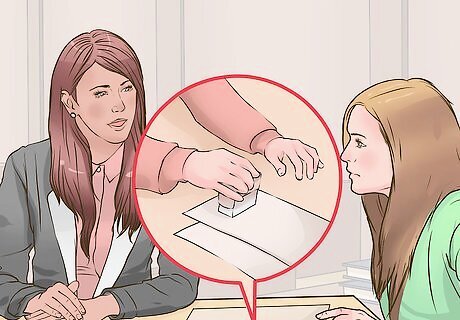
File your complaint. Once you have completed the complaint, you need to make several copies. Take the copies and the original to the court clerk. Ask the clerk if you can file the original. The clerk should stamp your copies with the date. You will also have to pay a filing fee. Ask the clerk for the amount (it will vary by court) and also ask about acceptable methods of payment. If you can't afford the filing fee, then ask for a fee waiver form.
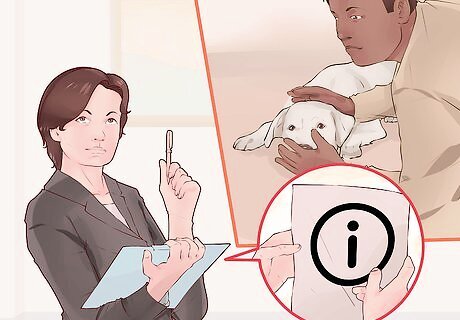
Serve notice on the vet. You must give the vet notice that you have filed the malpractice lawsuit. You can do this by serving the vet with a copy of your complaint. You might also have to send some other documents, such as a summons, which you can get from the court clerk. There are generally several ways to serve notice on the vet. For example, you could have someone 18 or older hand-deliver the notice to the vet. You could also hire a private process server or pay the sheriff to make delivery for a small fee. In small claims court, you can often have the court clerk mail a copy of the complaint to the vet using certified mail.

File your proof of service. If you arranged service with a private process server or some other person, then you must have the server fill out a “proof of service” form. This is also called an “affidavit of service.” You can get the form from the court clerk. The server needs to fill out this form after making service. He or she will then either file the form with the court or return it to you to file. Be sure to keep a copy for your records.
Preparing for Trial
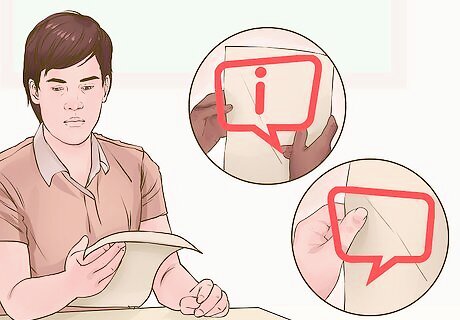
Analyze the answer. After the other party receives your complaint, they will be required to respond (usually within 30 days). The defendant's response is usually called an answer. Within the answer, the other party will address each of your allegations and either deny or accept them. Their answer will also contain any defenses and counterclaims they wish to make. Analyze the other party's answer to determine your course of action. If their answer contains counterclaims, you will be required to file an answer to those counterclaims. Your response will contain admissions or denials of the claims they make.

Take part in discovery. A period of discovery usually starts the litigation process. During discovery, you and the other party will have an opportunity to collect documents from each other in order to get an idea of how the case will proceed. During discovery you will be able to interview witnesses, gather facts, and figure out what the other side is going to say at trial. You will be able to use the following tools in order to help you: Informal discovery, which might include interviewing witnesses, collecting documents available to the public, and taking photographs. Interrogatories, which are written questions submitted to a party or witness. These questions must be answered on the record and can be used in court. Depositions, which are oral interviews given under oath. The person's answers can be used in court. Requests for documents, which allow you to ask the other side for documents that are not publicly available (e.g., emails, texts, or internal memos). Subpoenas, which are court orders requiring a person to speak or hand over documents.
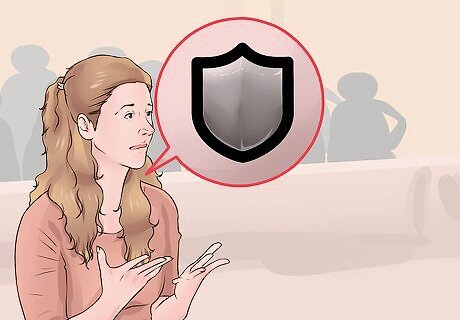
Defend against a motion for summary judgment. When discovery concludes, the defendant will usually file a motion for summary judgment. In order to be successful, they will have to show there are no genuine issues of fact in the case and that they are entitled to a judgment as a matter of law. In other words, the defendant will be arguing that there is no way you can win, even if every assumption is made in your favor. To defend against this motion, you will need to submit affidavits and evidence showing the court that there are disputed issues in the case or that the law is not clear. If you can do this, the defendant's motion will be denied and the case will continue.

Attend pre-trial hearings. You will have various pre-trial hearings taking place from the time you file your suit until the time a trial starts. These hearings can cover any number of issues. Usually, you will at least take place in a scheduling hearing and a stipulations hearing. During a scheduling hearing, you and the other party will work out a timeline of the case. This will include how long discovery will be and when the trial will likely start. During a stipulation hearing, you and the other party will inform the court of all the issues you agree on. This will help the judge decide the issues that need to be settled during a trial.

Attempt to settle your dispute. As a last ditch effort before your trial begins, you should meet with the other party and attempt to settle your dispute. If you can come to a settlement, you will avoid the large time and financial commitment required to go to trial. Generally, settlements can be reached informally or through a formal process (arbitration or mediation). During informal settlement talks, both sides will sit in a room and figure out the issues. If a deal can be reached, you will avoid trial. During mediation, a neutral third-party will work with both sides to figure out where there is common ground. The third-party will then try to work out an agreement that both parties are happy with. During arbitration, a neutral third-party plays a judge-like role. They will hear both sides of the story and make determinations about who has the stronger case. They may then file a written decision telling each party what they think the settlement should be.
Attending Your Trial
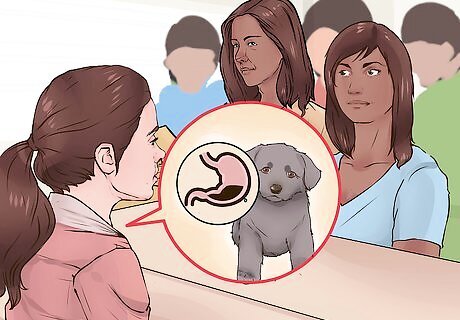
Make an opening statement. Your opening statement will start the trial. As the person bringing the veterinary malpractice lawsuit, you will go first. If you have a lawyer, then he or she should handle the entire trial. You would then only possibly testify. The purpose of the opening statement is to provide a roadmap of the evidence so that the judge has some idea of what evidence you will present. If you are representing yourself, then you should remember not to argue during your opening statement. Instead, stick to the facts. Begin statements with “as the evidence will show.” For example, you could say, “As the evidence will show, I took my dog, Munchkin, to the defendant's office on April 22, 2015. I will present evidence that Munchkin had a bloated stomach and hadn't eaten for three days. And as the evidence will further show, Dr. Lange, the defendant, examined her and then gave her a shot.”

Prove veterinary malpractice. You will present your evidence first. You need witnesses and documents that prove the vet's care fell below the relevant professional standard of care for vets, and that this shortfall caused the animal's injuries. Expert witnesses. You might need another vet to testify that the vet committed malpractice. If you are in small claims court, then you can often introduce an affidavit from the vet instead of having him or her come into court and testify. Your own observations. You can also tell the judge what you observed. If your state allows you to sue for emotional distress or loss of companionship with the animal, then you can testify about the grief you have felt since your pet died.

Listen to the defendant's evidence. The defendant presents his or her case after you. The defendant will probably use witnesses and documents as well. You should listen quietly to the defendant's evidence and not interrupt. In a regular civil trial, you or your lawyer could ask the witnesses questions. In small claims court, however, the judge might be the one who primarily asks the defense witness questions.

Make a closing argument. You might get the chance to make a closing argument, though this will depend whether you are in regular civil court or in small claims court. Your goal is to explain all of the evidence presented to the judge and show how it commands a result in your favor. Often, a trial for veterinary malpractice will come down to dueling expert opinions. Your expert will say that the vet's malpractice injured the animal. However, the vet's expert will state that the treatment was acceptable and the injury had other causes. In order to win the lawsuit, your lawyer will have to argue that your expert is more credible. This could be difficult. However, you could point out that your expert has been practicing longer or that your expert actually observed the animal's body.

Wait for the verdict. The judge might immediately make a ruling after all evidence has been submitted. The judge might also take some time to think over the case, especially if the evidence has been particularly complicated. If you lose, you might want to appeal. However, small claims courts sometimes only allow you to appeal in certain circumstances, and some small claims courts allow no appeals. You should talk about the possibility of an appeal with a lawyer.




















Comments
0 comment